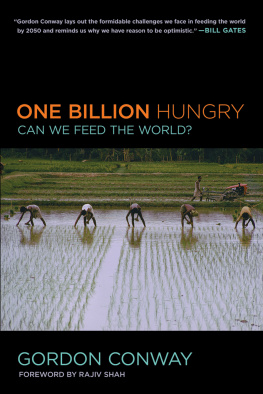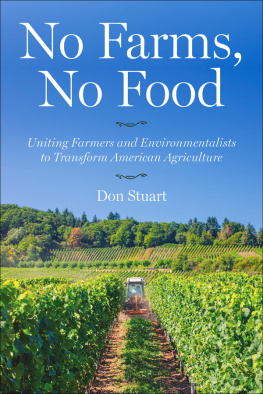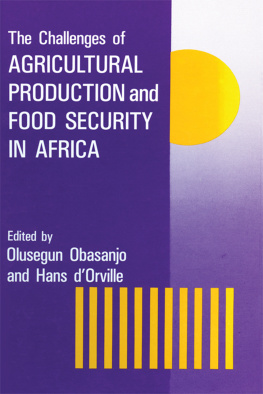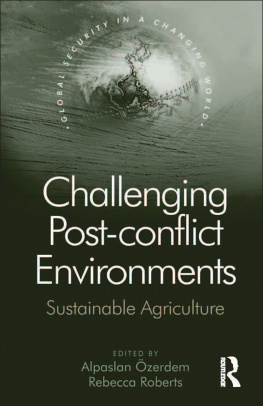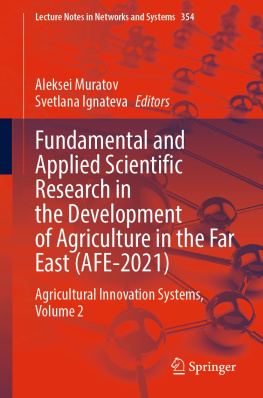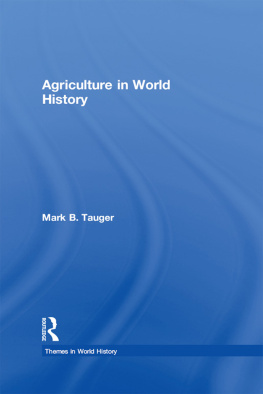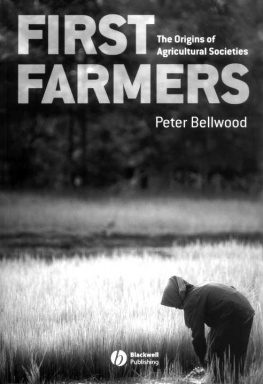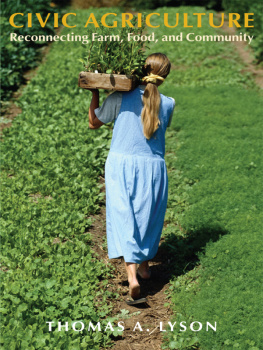FOOD FOR ALL IN AFRICA
Sustainable Intensification for African Farmers
Gordon Conway, Ousmane Badiane, and Katrin Glatzel
COMSTOCK PUBLISHING ASSOCIATES
AN IMPRINT OF CORNELL UNIVERSITY PRESS
ITHACA AND LONDON
To the memory of Calestous Juma,
a smart, dedicated man with a delightful sense of humor
Contents
Illustrations
Figures
Tables
Foreword
Nearly twenty years ago Sir Gordon Conway was my president at the Rockefeller Foundation, where we worked together as colleagues. We were focused on developing new institutions and processes for agricultural development in East Africa, notably, village-level agrodealers, local seed companies, and the creation of bank guarantees for agricultural loans.
Conway wrote about these innovations in his classic book The Doubly Green Revolution and in a subsequent textbook, One Billion Hungry. For this new book he is joined by two co-authors: Ousmane Badiane, the director for Africa of the International Food Policy Research Institute at Dakar, Senegal, and a noted authority on the political economy of agricultural development in Africa; and Katrin Glatzel, program head of the Malabo Montpellier Panel, and a visiting researcher at Imperial College London.
Food for All in Africa is a deliberately optimistic book. As the authors say in the introduction, even though most African farmers are smallholders, with no more than two hectares of land, many have demonstrated that with the right advice and inputs they can feed their families and create sustainable livelihoods. The challenge is to bring these achievements to scale by linking them to modern and effective food value chains.
At the African Development Bank, we aim to strengthen agriculture and food security through an integrated value chain approach that can improve the livelihoods of Africans who live in rural areas. Many are reliant on subsistence farming, and a sizable proportion are chronically vulnerable to climatic uncertainty. Africa lives off its land, and more than 70 percent of Africans work on the land, an enterprise that too often fails to meet their needs. By continuing to invest in agricultural technologies and rural infrastructure, including rural roads, irrigation, electricity, storage facilities, access to markets, conservation systems, and supply networks, the African Development Bank will help countries to increase agricultural productivity and competitiveness.
The African Development Bank is investing US$24 billion in agriculture over the next ten years to help turn agriculture into a business for creating wealth and lifting millions out of poverty.
We are pleased to collaborate with the Federal Ministry of Economic Cooperation and Development in Germany and the Department for International Development in the United Kingdom in funding the new Malabo Montpellier Panel, co-chaired by Ousmane Badiane and Joachim von Braun. This is a successor to the original Montpellier Panel, chaired by Sir Gordon Conway, whose members included both African and European experts in agricultural development and whose aim was to demonstrate to European donors how to target European investment in Africa more effectively.
The successor, the Malabo Montpellier Panel, has a predominantly African membership and is based in Dakar. It produces periodic reports on key issues of interest to African government, non-government, and private sector leaders. The first two reports, published in 2017 and 2018, are titled Nourished: How Africa Can Build a Future Free from Hunger and Malnutrition and Mechanized: Transforming Africas Agricultural Value Chains. The reports have helped to raise awareness of the importance of these topics in regard to agriculture in Africa.
As we continue to tackle the challenges of transforming Africas agriculture, I look forward to reading more such insightful reports in future.
Akinwumi A. Adesina
President of the African Development Bank
Acknowledgments
Much of this book is based on our work, as well as that of our colleagues, under the auspices of Agriculture for Impact, the Montpellier Panel, and its successor the Malabo Montpellier Panel.
Agriculture for Impact (A4I) (201016; www.ag4impact.org; www.canwefeedtheworld.org) was an independent advocacy initiative based at Imperial College London. A4I encouraged European decision-makers to provide more effective support to sustainable, productive, equitable, and resilient agricultural development for smallholder farmers in Africa. A4I convened the Montpellier Panel (201016), a group of European and African experts in the fields of agriculture, trade, ecology and global development.
The Montpellier Panels successor, the Malabo Montpellier (MaMo) Panel (2017; www.mamopanel.org), is facilitated jointly by the International Food Policy Research Institute, Imperial College London, and the Center for Development Research at the University of Bonn. It convenes leading African and international experts in agriculture, ecology, nutrition, and food security to guide policy choices by African governments to accelerate progress toward food security and improved nutrition.
We have also greatly benefited from the inputs of the staff and members of the panels. We would like to thank them for their considerable expertise, innovative ideas, and important insights, without which the work of the panels and this book would have been much poorer.
Acronyms
AGRA Alliance for a Green Revolution in Africa
AGRODEP African Growth and Development Policy
APRM African Peer Review Mechanism
CA conservation agriculture
CAADP Comprehensive Africa Agriculture Development Programme
CGIAR Consortium of International Agricultural Research Centers (previously Consultative Group on International Agricultural Research)
CIMMYT International Maize and Wheat Improvement Center
CO2 carbon dioxide
COMESA Common Market for Eastern and Southern Africa
CSA climate-smart agriculture
DAP diammonium phosphate
ECOWAS Economic Community of West African States
EU European Union
FAO Food and Agriculture Organization of the United Nations
FAW fall armyworm
GHGs greenhouse gases
GHI Global Hunger Index
GMOs genetically modified organisms
GPS global positioning system
HGSF Home Grown School Feeding
IFPRI International Food Policy Research Institute
IPM integrated pest management
ISM integrated soil management
IWRM integrated water resource management
MDGs Millennium Development Goals
N2O nitrous oxide
NDVI normalized difference vegetation index
NEPAD New Partnership for Africas Development
NGO non-governmental organization
OECD Organisation for Economic Co-operation and Development
OPV open pollinated varieties
PRSP Poverty Reduction Strategy Programs
ReSAKSS Regional Strategic Analysis and Knowledge Support System
SADC Southern African Development Community
SDGs sustainable development goals
SI sustainable intensification
SOC soil organic carbon
SPO smallholder producer organization
SSA sub-Saharan Africa
WFP World Food Programme
WHO World Health Organization


